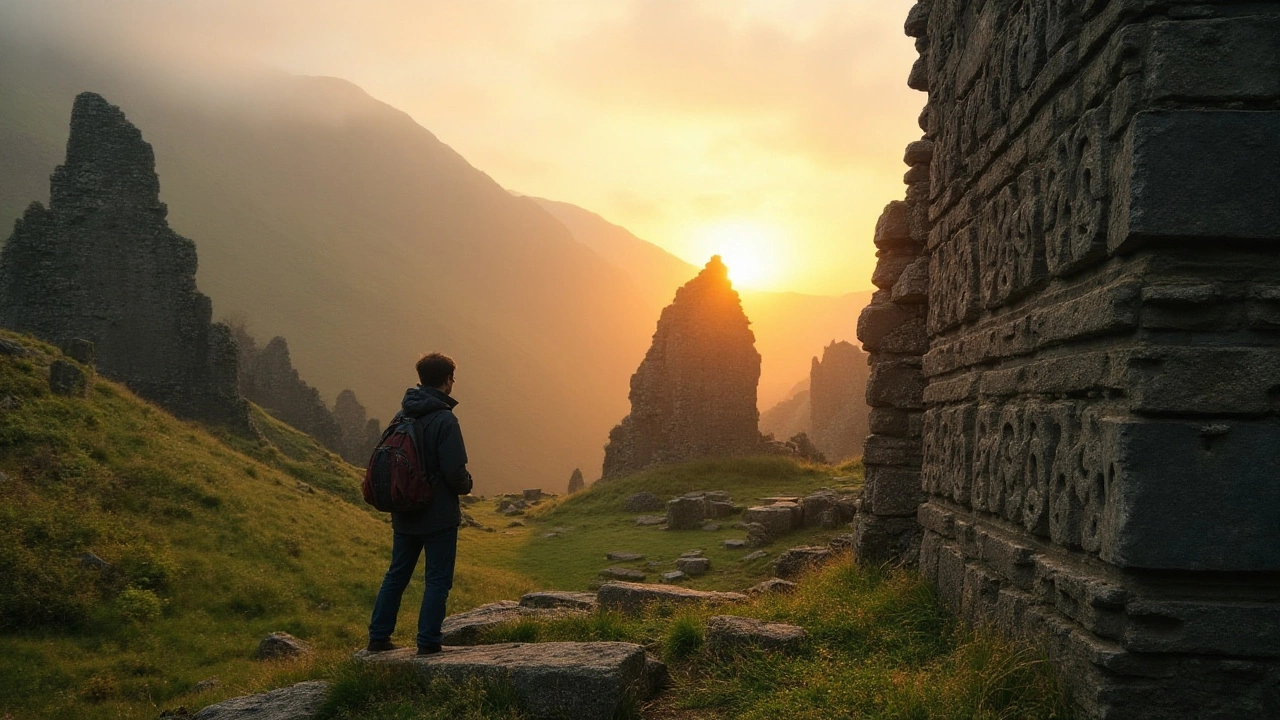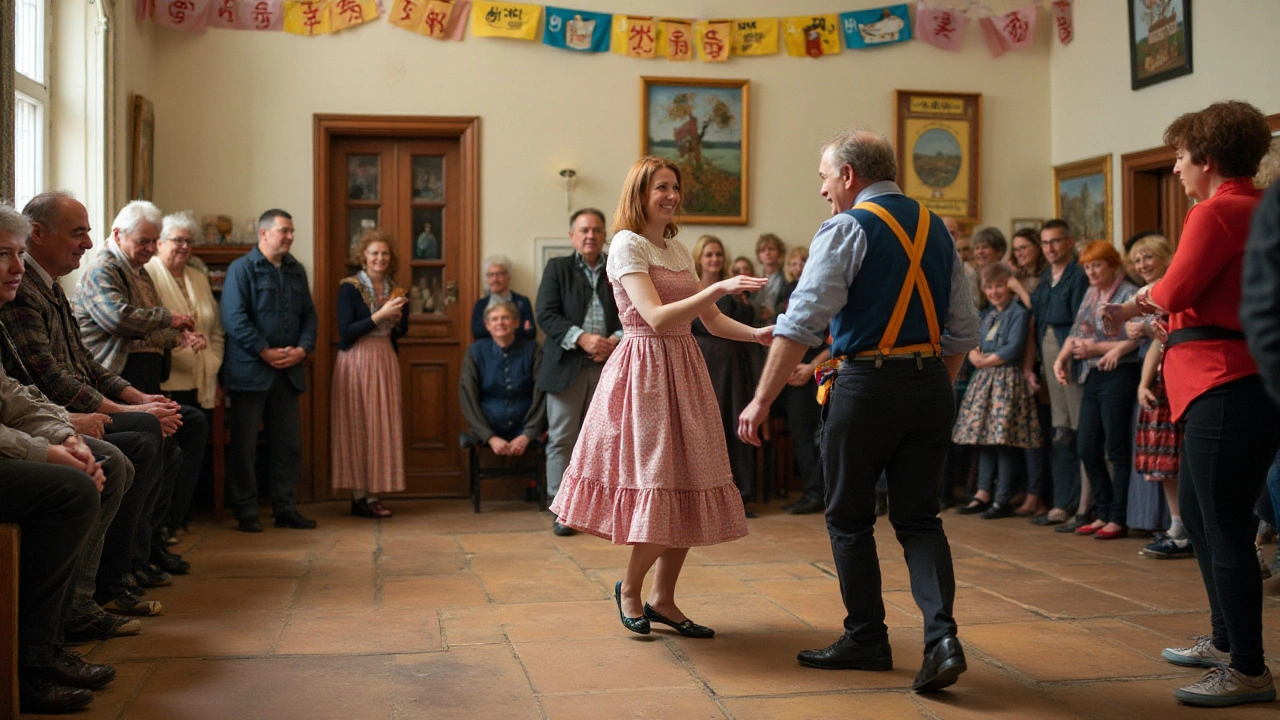Exploring the World Through Cultural Excursions
 Oct, 17 2024
Oct, 17 2024
Traveling is not just about ticking destinations off a list; it's about the stories you bring home, the people you meet, and the new perspectives you gain. Cultural excursions take this notion a step further, offering a rich tapestry of experiences that delve deep into the traditions, histories, and everyday lives of people all around the world.
Imagine standing amid the vibrant colors of a local market in Marrakesh, or feeling the echoes of history in the ancient ruins of Angkor Wat. Such experiences open doors to understanding a world you might only have seen in textbooks and documentaries. Cultural excursions are your personal, immersive classroom, where every moment adds to your education and enrichment.
- Understanding Cultural Excursions
- Types of Cultural Experiences
- Benefits of Cultural Travel
- Tips for Planning Your Trip
Understanding Cultural Excursions
Cultural excursions are a gateway to understanding the fabric of societies different from our own, offering immersive experiences that aren't just about sightseeing, but about feeling a place come alive through its people, rituals, and history. These journeys weave narratives that can't be captured through the lens of a camera alone. Instead, they ask travelers to slow down, listen closely, and engage with the essence of a culture by participating in its daily rhythm and learning about its core values.
When you dive into a cultural trip, you're doing more than visiting a location—you’re connecting to timeless stories and traditions that define a community's way of life. Take, for example, the yearly rice harvest festivals across Southeast Asia, where travelers can join locals in their age-old celebrations, understanding not just the agricultural aspects, but also the social and spiritual significance of the harvest. It's a glimpse into a way of life that respects the land and its bounty, emphasizing communal cooperation and gratitude.
There's a particular magic in witnessing and experiencing historical rituals or vibrant festivals first-hand. From Japan's serene tea ceremonies, which teach patience and mindfulness, to the electrifying energy of Brazil's Carnival, these cultural moments paint a picture of a community's soul. Even something as simple as a cooking class in an Italian family's kitchen or a language lesson in a Spanish village allows for an enriching encounter where one absorbs the heartbeat of local life through its cuisine and dialogue.
Statistics also show that these cultural adventures have grown in popularity. According to a survey by the World Tourism Organization, over 40% of international travelers in recent years have engaged in some form of cultural excursions, showing a rising eagerness to learn from and interact with diverse cultures. In an increasingly globalized world, these experiences build bridges of understanding, dissolving barriers and fostering peace through shared experiences.
These trips aren't just about personal pleasure or intellectual curiosity—they contribute immensely to the local economies of host countries. Small businesses thrive on tourism revenue generated from these culturally motivated travels. Local artisans, guides, and hosts benefit directly, allowing them to showcase their unique heritage and crafts. In return, travelers gain authentic insights and often leave a place with a richer understanding of its culture, carrying home not just souvenirs but stories and friendships that last a lifetime.
"Travel is fatal to prejudice, bigotry, and narrow-mindedness," observed Mark Twain, underlining the incredible power of travel to broaden the mind.

Types of Cultural Experiences
Cultural excursions can be as varied as the destinations themselves, offering travelers numerous ways to engage with the local culture and traditions. A popular type is heritage tourism, which focuses on historical sites and landmarks. By visiting places like the Colosseum in Rome or the Great Wall of China, tourists can step back in time and gain insights into the civilizations that shaped our present world. These places serve as open books, narrating the stories of emperors, warriors, and common folk alike.
Another significant type is culinary tourism. In this delicious form of cultural trips, food becomes the gateway to understanding a community. Tasting traditional dishes, participating in cooking classes, or exploring local markets can reveal the intricacies of a region's economy, social customs, and historical influences. For instance, a steaming bowl of Japanese ramen isn't just a meal; it’s a story about migration, adaptation, and creativity across Japan's history. In Anthony Bourdain’s words, "Food is everything we are. It’s an extension of nationalist feeling, ethnic feeling, your personal history, your province, your region, your tribe, your grandma."
Then, there are festivals and events that display cultural vibrancy through music, dance, and art. Attending a festival like Carnival in Brazil or Diwali in India introduces participants to the joyous simplicity and deep-rooted beliefs that fuel these celebrations. The sounds of samba, the colors of countless diyas, these experiences envelop travelers in the heartbeat of the local society, making them feel like more than just an observer.
Eco-cultural tours cater to those who wish to connect with nature and native cultures simultaneously. These experiences often lead travelers into rural areas, providing an understanding of indigenous practices and how they intertwine with environmental sustainability. For instance, a visit to the Amazon might include learning about traditional plant medicines directly from local tribes who have nurtured the forest's biodiversity through wise living. This approach to travel opens eyes to harmonious living and respect for nature's gifts.
For adventure seekers, cultural safaris offer a thrilling mix of travel and tradition. Whether trekking through the Maasai Mara in Kenya or navigating the ancient trade routes of the Silk Road, these excursions show the adventurous side of human exploration and cultural exchange. Adventure travel enthusiasts gain an appreciation for survival skills, ancient navigation techniques, and the spirit of discovery that drives human curiosity.
Each type of cultural experience has its unique flavor, and the possibilities are vast. As the world becomes more connected, cultural exchanges break down barriers, fostering understanding and unity. So, pack your bags and open your heart to the wealth of cultural excursions waiting to be explored and embraced.

Benefits of Cultural Travel
Embarking on cultural trips opens the door to a multitude of enriching experiences that go beyond the ordinary. One of the foremost benefits is the chance to learn firsthand about diverse cultures. This immersion into another way of life provides invaluable insights that no book or online article can fully capture. By exploring different traditions and customs, travelers can gain a deeper appreciation for the world’s variety and vibrancy.
The aspect of cultural exchange is another significant advantage. When you travel with an open mind, willing to engage with local communities, you’re not just learning about them, but they also learn about you. This reciprocal sharing fosters mutual respect and understanding. According to a study by the United Nations World Tourism Organization, international tourism fosters peace by breaking down barriers and promoting tolerance among peoples and cultures. These trips often result in lifelong friendships that transcend geographical boundaries.
Cultural travel also offers a profound opportunity for self-reflection and personal growth. By stepping out of familiar environments, we challenge our own beliefs and assumptions. This exposure to new perspectives can lead to significant personal development as we reassess our values and worldviews. It pushes us to become more adaptable, empathetic, and aware of the global tapestry of human experience.
Moreover, there’s an economic benefit not only for travelers but also for the destinations they visit. Cultural excursions tend to support local economies by encouraging spending at community-run accommodations, eateries, and artisan markets. The economic impact of tourism is substantial, with the World Travel and Tourism Council noting that in 2019, tourism accounted for 10.3% of global GDP. By prioritizing cultural experiences, tourists can ensure their expenditures contribute positively to local communities.
As Rick Steves, a renowned travel writer, puts it: "Travel is rich with learning opportunities, and the ultimate souvenir is a broader perspective." His words encapsulate the educational value that comes with experiencing cultures different from one's own.
Ultimately, cultural travel molds us into global citizens who value diversity and advocate for a more interconnected and understanding world. This type of travel has the power to unite, educate, and inspire, making its benefits not just personal, but societal. As people set out on their journeys, they contribute to peace and solidarity by weaving a richer, more interconnected world tapestry.

Tips for Planning Your Trip
Planning a cultural trip can be both exciting and daunting, as there are so many layers to uncover when it comes to experiencing the rich tapestry of global traditions. It's more than just booking a flight and packing your suitcase; it involves careful consideration to ensure that your journey is as rewarding as it is enlightening. The first step in planning your cultural excursion is to research your destination thoroughly. Knowing the history, customs, and language nuances can greatly enhance your experience. Consider reading travel guides, blogs, and watching documentaries about the area. Not only does this information prepare you for the trip, but it also helps you gain a deeper understanding of the people you'll meet. As travel writer Rick Steves puts it,
“Travel, like the world, is a series of moments, and to miss any one of them is to miss the whole thing.”
Next, consider the timing of your visit. Many cultural experiences are tied to specific festivals, events, or seasons. Arriving in India during Diwali or in Japan during the cherry blossom season can provide you with unique insights into these cultures. But don't forget to check if these festivals could result in crowded accommodations or complex logistics. It's helpful to contact local tourism boards for detailed information about events and the best times to visit. Alongside timing, remember to respect and adhere to local customs and dress codes, which vary greatly from one region to another. Always bring a versatile wardrobe that allows you to show respect while blending comfort and practicality.
A crucial tip is to plan your itinerary based on not just sights to see but experiences that immerse you in the local life. Engage in activities like cooking classes, language lessons, or volunteering, which are avenues to forge real connections with locals. Such interactions often lead to unforeseen adventures and cherished memories, turning your travel experiences into personal storytelling treasures. As you engage in these cultural activities, come with an open mind and a readiness to learn and adapt. Being flexible opens doors to unexpected encounters and discoveries that are often the true highlights of any trip.
Lastly, budget wisely. Cultural excursions can be surprisingly affordable when planned carefully. Consider staying with host families or booking through responsible tour operators who emphasize cultural engagement over commercial gain. This not only enhances your understanding of local cultures but can also reduce costs significantly. Also, remember to include a buffer in your budget for unforeseen opportunities, like a local guide who might offer you an exclusive tour off the beaten path. Another great saving tip is to delight in authentic street foods or traditional meals, which provide an affordable yet delicious insight into the local cuisine. Keep in mind all these tips to ensure your cultural journey becomes a treasured, not a stressful, memory.
